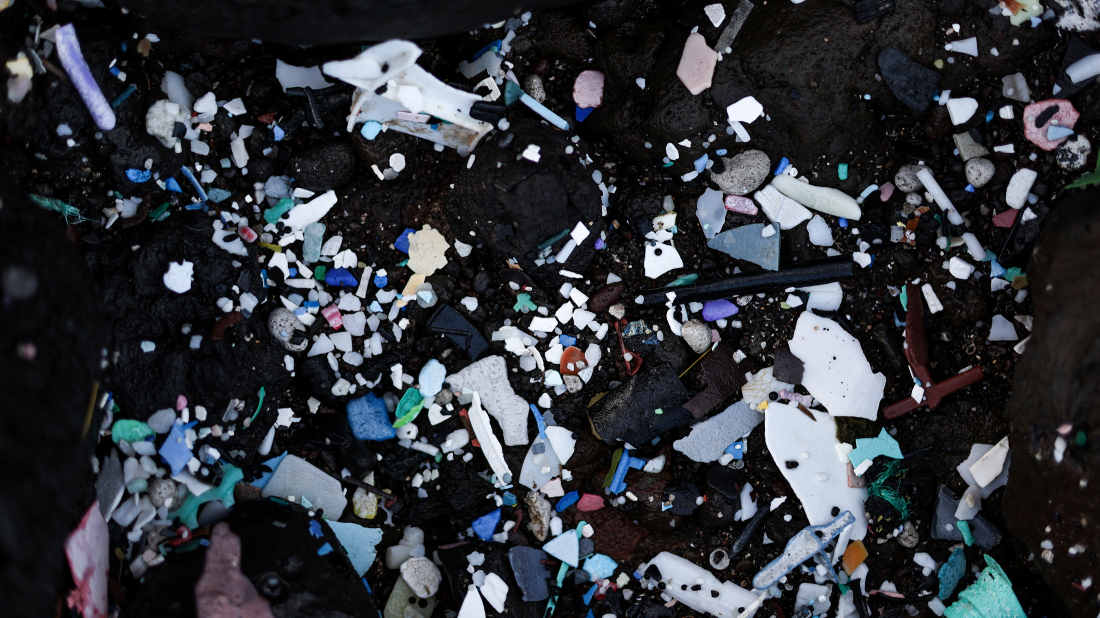Somali airstrike kills 15 al-Shabaab militants in Middle Shabelle
The Somali Army carried out a targeted airstrike in southern Somalia, killing 15 al-Shabaab militants, the country’s Defence Ministry said on Sunday...

Adults are inhaling around 68,000 microplastic particles each day, researchers warn, over 100 times previous estimates.
People may be breathing in far more microplastic than previously thought, according to a new study published in PLOS One. Researchers from the University of Toulouse found that adults inhale approximately 68,000 microplastic particles per day, a figure that is more than 100 times earlier estimates.
The study focused on microplastics measuring between 1 and 10 micrometers, which can lodge deep in the lungs and pose serious health risks.
“Most studies so far have examined larger particles between 20 and 200 micrometers,” the researchers wrote. “But smaller microplastics pose greater concern for respiratory health.”
Using Raman spectroscopy, the team analysed air samples from indoor environments and car cabins. They found median concentrations of 528 particles per cubic metre in homes and 2,238 per cubic metre in vehicles. Notably, 94% of the particles were under 10 micrometers in size.
By comparing their findings with earlier data on larger particles, the scientists estimated that the majority of inhaled microplastics are small enough to evade the body’s natural defences and enter the respiratory system. The inhalation of such particles, they warned, could lead to oxidative stress, weakened immunity, and damage to organs beyond the lungs.
Nadiia Yakovenko and Jeroen Sonke, co-authors of the study, highlighted the dangers of confined spaces, stating, “During long commutes, people may inhale far greater quantities of microplastics due to air circulation limits inside vehicles.”
The authors are now urging further research into the long-term effects of microplastic inhalation and calling on policymakers to prioritise indoor air quality.
U.S. Ambassador to NATO Matthew Whitaker said China has the power to bring an end to Russia’s war in Ukraine, arguing that Beijing is enabling Moscow’s military campaign.
American figure skating star Ilia Malinin endured a dramatic collapse in the men’s free skate on Friday night, falling twice and tumbling out of medal contention at the Milan Cortina Winter Olympics as Kazakhstan’s Mikhail Shaidorov surged to a surprise gold medal.
“Respected and feared globally,” U.S. President Donald Trump told troops at Fort Bragg on Friday (13 February), framing America’s renewed strength against to mounting pressure on Iran amid stalled nuclear talks.
Speaking at Munich Security Conference, Ukrainian foreign minister Andrii Sybiha calls for decisive steps ahead of expected Geneva talks
Thousands of fans packed River Plate’s Monumental Stadium in Buenos Aires on Friday for the first of three sold-out concerts by Puerto Rican reggaeton star Bad Bunny, as part of his “Debí Tirar Más Fotos” World Tour.
Measles cases across Europe and Central Asia fell sharply in 2025 compared to the previous year but health officials have warned that the risk of fresh outbreaks remains unless vaccination gaps are urgently addressed.
A Florida university has become a new hotspot in a widening U.S. measles outbreak, with health officials confirming multiple infections and hospitalisations.
The World Health Organization has added the Nipah virus to its list of the world’s top 10 priority diseases, alongside COVID-19 and the Zika virus, warning that its epidemic potential highlights the global risk posed by fast-spreading outbreaks.
Belgian authorities are examining suspected cases of infants falling ill after consuming recalled Nestle baby formula, amid warnings that confirmed infections may be underestimated due to limited testing requirements.
Two Nipah infections involving health workers in India have triggered heightened screening across Southeast Asia as authorities move to prevent the high fatality virus from spreading beyond the country.
You can download the AnewZ application from Play Store and the App Store.

What is your opinion on this topic?
Leave the first comment